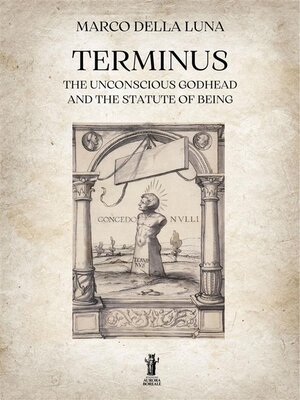
Sign up to save your library
With an OverDrive account, you can save your favorite libraries for at-a-glance information about availability. Find out more about OverDrive accounts.
Find this title in Libby, the library reading app by OverDrive.



Search for a digital library with this title
Title found at these libraries:
| Library Name | Distance |
|---|---|
| Loading... |
We feel time flowing voraciously around our being and all things, inexorably corroding them until annihilation; we try to slow this process down with technique or to transcend it with faith in a perfect and immutable Being; overall, we tend towards nihilism and depression. But this feeling is deceptive, as is the remedy for it.
Terminus addresses in purely rational terms the basic questions of existence and time, of the relationship with the Infinite, reviews the great answers of ancient and modern philosophers, and opens, with a reversal of perspective, consciousness to becoming as a constituent internal to being, and co-eternal with it; and to being as pure positive, exempt from nothingness and from negation, but not from the Limit. While the perfect and immutable Being is an ontological nonsense.
In his essay Terminus, The Unconscious Godhead and the Statute of Being, Marco Della Luna not only explains Philosophy in its most intimate essence as a Sacred Science, but, most important, he demonstrates this pure essence when he states that «Philosophy arises from realizing that the conception of reality, i.e. the ontological conception, implicit in common sense, and presupposing a reality "made" in a certain way, does not stand up to a logical analysis, because it manifests contradictions» and furthermore when he states that one of the goals of this new work of his is «the demonstration of total logical inconsistency of all the constructs elaborated in this way and the unsustainability of the common conception of being».
Terminus is not an ordinary essay on Philosophy, as we can find on bookshelves, and it is definitely not a book for everybody, given its inevitable complexity: it is rather a book which teaches to see, discover and understand Philosophy in its most authentic light. A book that - and I say it without hesitation - can also help rewrite the concept of Ontology and the history of Philosophy itself.
Terminus addresses in purely rational terms the basic questions of existence and time, of the relationship with the Infinite, reviews the great answers of ancient and modern philosophers, and opens, with a reversal of perspective, consciousness to becoming as a constituent internal to being, and co-eternal with it; and to being as pure positive, exempt from nothingness and from negation, but not from the Limit. While the perfect and immutable Being is an ontological nonsense.
In his essay Terminus, The Unconscious Godhead and the Statute of Being, Marco Della Luna not only explains Philosophy in its most intimate essence as a Sacred Science, but, most important, he demonstrates this pure essence when he states that «Philosophy arises from realizing that the conception of reality, i.e. the ontological conception, implicit in common sense, and presupposing a reality "made" in a certain way, does not stand up to a logical analysis, because it manifests contradictions» and furthermore when he states that one of the goals of this new work of his is «the demonstration of total logical inconsistency of all the constructs elaborated in this way and the unsustainability of the common conception of being».
Terminus is not an ordinary essay on Philosophy, as we can find on bookshelves, and it is definitely not a book for everybody, given its inevitable complexity: it is rather a book which teaches to see, discover and understand Philosophy in its most authentic light. A book that - and I say it without hesitation - can also help rewrite the concept of Ontology and the history of Philosophy itself.







